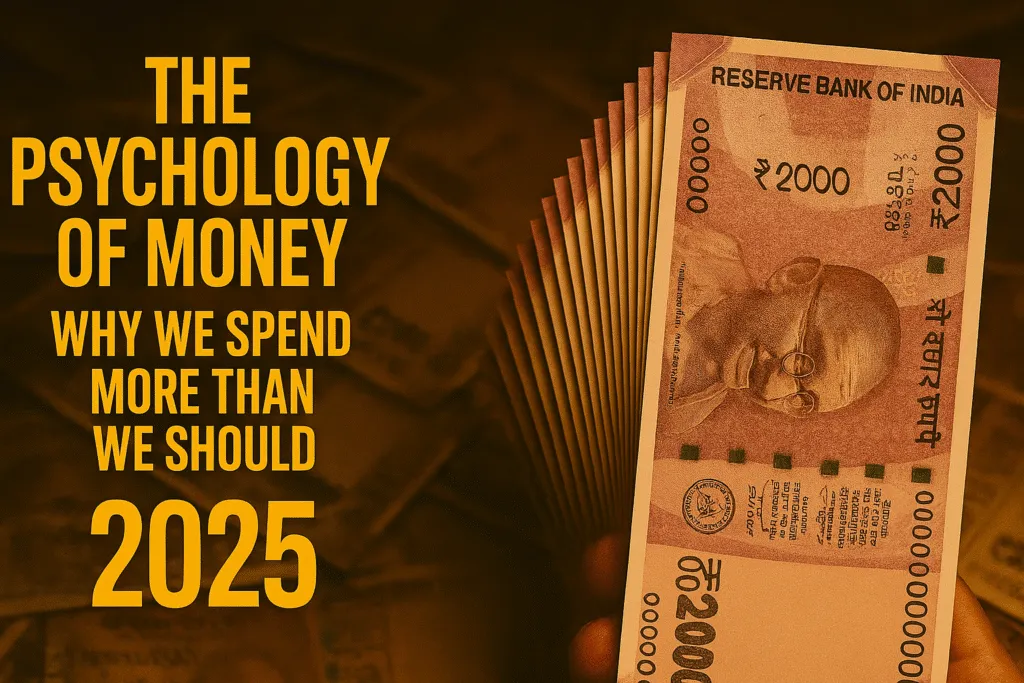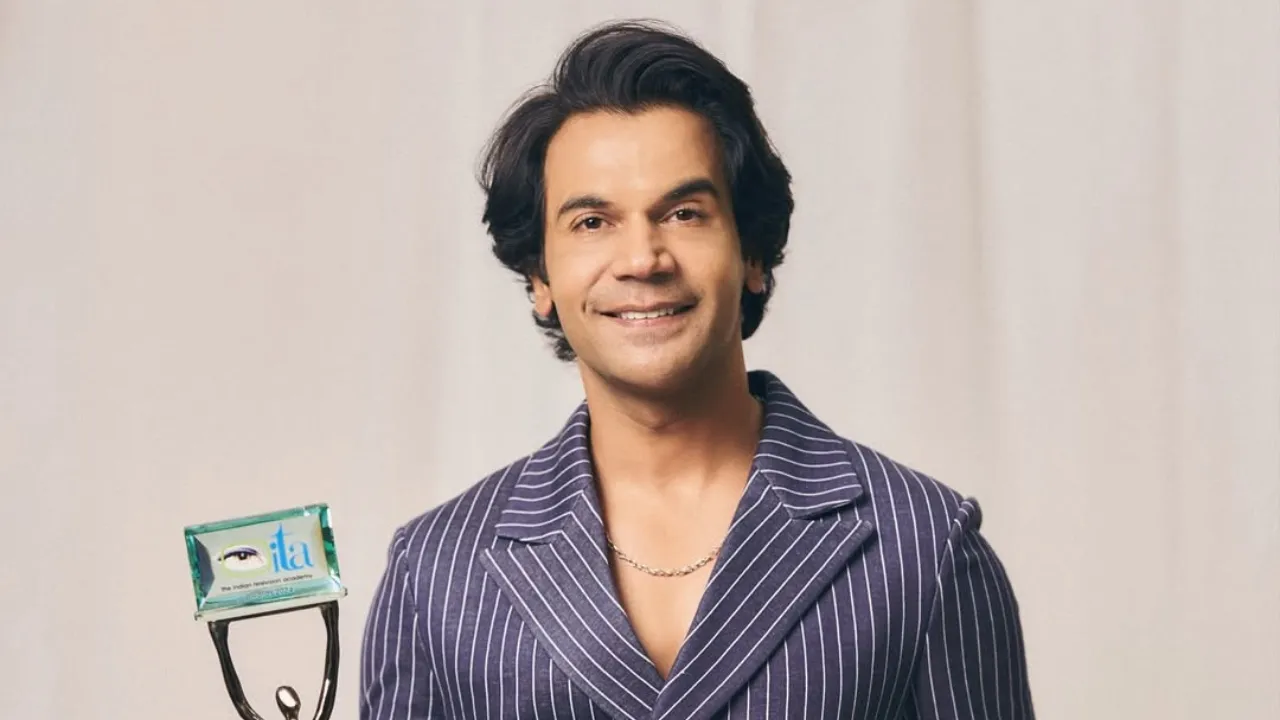Introduction
Money is more than just numbers in a bank account; it is deeply tied to how we think, feel, and behave. The psychology of money reveals that our financial choices are often influenced by emotions, habits, and social pressures rather than pure logic. From buying the latest gadgets to splurging on lifestyle upgrades, our spending decisions are shaped by a mix of desire, fear, and sometimes even insecurity. Understanding this connection between mind and money is the first step toward building healthier financial habits.
In today’s fast-paced world, people spend more than they should not because they lack discipline, but because the modern environment constantly triggers emotional spending. Advertisements are designed to tap into our sense of urgency and fear of missing out. Social media amplifies this effect, showing us curated lifestyles that make us believe we need more to feel successful. The psychology of money helps us recognize these patterns and question whether our purchases align with our true needs or if they are driven by external influences.
By exploring the psychology of money, we can uncover why instant gratification feels rewarding but often leads to long-term stress. It highlights how our brains are wired to seek pleasure and avoid discomfort, even if it harms our finances. Once we become aware of these psychological triggers, we can learn to pause, reflect, and make better decisions with our money.
This journey is not about cutting every expense or denying yourself joy but about finding balance. When you understand the psychology of money, you gain the power to control your spending instead of letting it control you. This awareness opens the door to financial freedom, reduced anxiety, and a more meaningful relationship with money.
The Science Behind Money and the Brain
When it comes to spending, saving, or investing, most of us assume our choices are based on logic. In reality, the psychology of money shows that financial decisions are often driven by how our brains process rewards and risks. Neuroscience reveals that money activates the same pleasure centers in the brain as food, love, or even addictive substances. This is why the thrill of shopping or making a profit can feel so powerful.
One of the key chemicals involved in this process is dopamine. Whenever we anticipate a reward, dopamine spikes, creating excitement and motivating us to act. This explains why browsing a shopping app or seeing a discount sign can instantly trigger the urge to buy. The brain is wired to seek instant gratification, making it difficult to resist short-term pleasures even when they hurt our long-term goals. This tug-of-war between immediate satisfaction and delayed rewards lies at the core of the psychology of money.
Another important factor is how our brain perceives losses versus gains. Studies show that people feel the pain of losing money much more intensely than the joy of gaining the same amount. This phenomenon, known as loss aversion, often leads to irrational financial behavior. For example, someone might keep holding on to a failing investment simply to avoid admitting loss, even when selling would be the smarter choice.
Understanding the science behind money and the brain allows us to see why financial discipline feels so challenging. It’s not just about willpower but about recognizing how our brains are naturally wired. By being aware of these patterns, we can make conscious decisions that support long-term stability instead of giving in to emotional impulses. This awareness is a cornerstone of mastering the psychology of money.
Common Psychological Triggers That Lead to Overspending
Overspending is rarely about numbers on a budget sheet. It is deeply connected to human behavior, emotions, and social influences. The psychology of money explains that people often spend more than they should because of psychological triggers that are difficult to control. These triggers play on our emotions, pushing us toward instant gratification even when we know the consequences.
One of the strongest triggers is lifestyle inflation. As income grows, spending tends to rise automatically. People upgrade homes, gadgets, or cars simply to match their new financial level, often without considering whether those upgrades bring genuine happiness. Social comparison adds to this, as seeing peers or influencers showcase luxury lifestyles creates pressure to keep up.
Another powerful trigger is the fear of missing out. Limited-time offers, flash sales, or trending products create urgency and convince us that if we don’t act now, we’ll regret it later. This emotional push often results in unnecessary purchases. Similarly, retail therapy—spending to cope with stress, sadness, or boredom—can provide short-term comfort but leads to long-term financial strain.
Marketing strategies also play a significant role. Discounts, psychological pricing, and “buy one get one free” tactics make us feel like we’re saving money while actually encouraging us to spend more. The psychology of money shows how these external influences manipulate our brains into making decisions that feel logical in the moment but don’t align with our financial goals.
Recognizing these triggers is the first step toward control. By pausing before purchases, questioning whether they fulfill a real need, and setting boundaries, individuals can resist overspending. Once we understand how the psychology of money influences our choices, we can replace impulsive decisions with intentional financial habits.
Social and Cultural Influences
Money decisions do not happen in isolation. They are shaped by the world around us, from family traditions to cultural expectations and even global trends. The psychology of money highlights how social and cultural factors strongly influence the way people spend, save, and value wealth. While personal choices matter, the environment we live in often has a bigger impact than we realize.
In many societies, money is directly linked to status and identity. People feel pressure to display success through material possessions such as branded clothes, luxury cars, or lavish weddings. This cultural expectation pushes individuals to spend beyond their means, not for personal satisfaction, but to gain acceptance or recognition. The psychology of money shows that such behavior often leads to financial stress because spending is driven by appearances rather than true needs.
Social media has intensified these influences. Platforms showcase carefully curated lifestyles where travel, fashion, and gadgets symbolize success. Constant exposure creates comparison, making people believe they must match those standards. This cycle fuels overspending and reduces financial confidence. Similarly, peer pressure plays a role—friends and colleagues can unintentionally set spending benchmarks that others feel obligated to follow.
Cultural values around saving and investing also vary. In some cultures, saving for the future is a priority, while in others, spending in the present is seen as a way to enjoy life fully. These inherited money mindsets often define how individuals approach financial planning.
By understanding the psychology of money within a social and cultural context, individuals can separate their true financial goals from outside expectations. This awareness allows them to spend with purpose rather than pressure, leading to healthier financial habits and greater long-term stability.
Behavioral Biases in Financial Decisions
When it comes to money, humans are not always rational decision-makers. The psychology of money explains that our choices are often shaped by behavioral biases—mental shortcuts that influence how we think about risk, reward, and value. These biases can lead to overspending, poor investments, and financial stress, even when we know better logically.
One of the most common biases is anchoring. This occurs when we rely too heavily on the first piece of information we see, such as the “original price” of a product. A discount makes us believe we are getting a great deal, even if the purchase is unnecessary. Another frequent bias is the sunk cost fallacy, where people continue investing time or money into something just because they have already spent on it. For example, holding onto a subscription you never use simply because you paid for it.
Loss aversion is another powerful factor. Studies show that people fear losing money more than they value gaining the same amount. This explains why investors sometimes hold on to failing stocks or avoid opportunities that could be beneficial. Similarly, confirmation bias leads individuals to seek information that supports their existing beliefs about money while ignoring evidence that challenges them.
These behavioral biases highlight why financial decision-making is often more emotional than logical. The psychology of money emphasizes that awareness is key. By recognizing these patterns, individuals can pause before making decisions and ask whether their choice is based on facts or on mental shortcuts.
Developing strategies such as setting predefined goals, automating savings, or seeking outside advice can help overcome these biases. Once we learn to manage them, financial choices become clearer, smarter, and more aligned with long-term goals rather than short-term impulses.
Long-Term Impact of Overspending
Spending money brings short-term satisfaction, but the long-term consequences can be far more damaging than most people realize. The psychology of money explains that overspending is not simply a financial issue—it affects mental health, lifestyle choices, and overall stability. While buying something new may feel rewarding in the moment, the hidden costs of consistent overspending build up over time.
One of the most significant impacts is debt accumulation. Credit cards, loans, and buy-now-pay-later schemes make it easy to live beyond one’s means, but this creates cycles of repayment that drain future income. Instead of enjoying financial freedom, individuals become tied to monthly obligations that limit their ability to save or invest. Over time, this financial stress often leads to anxiety, guilt, and even strained relationships.
Another long-term consequence is missed opportunities. Money spent impulsively on short-term desires could have been invested to grow wealth, build an emergency fund, or plan for retirement. The psychology of money shows that people often underestimate the value of delayed gratification, leading them to sacrifice long-term security for immediate pleasure. This habit can delay milestones such as buying a home, starting a business, or achieving financial independence.
Overspending also impacts lifestyle stability. As individuals adjust to a higher standard of living, cutting back becomes increasingly difficult. This lifestyle inflation creates dependency on constant income growth, which may not always be sustainable. In uncertain times, such as job loss or economic downturns, the effects of overspending become even more severe.
Understanding the psychology of money helps highlight these risks and encourages individuals to reflect on the true cost of their financial decisions. By recognizing the long-term impact of overspending, people can begin to shift their habits toward mindful spending, financial security, and lasting peace of mind.
How to Rewire Your Money Mindset
Changing financial habits starts with changing the way we think about money. The psychology of money teaches us that most financial struggles are not due to a lack of income but due to the mindset that drives our choices. By rewiring how we view spending, saving, and investing, it becomes possible to create healthier money habits that last a lifetime.
The first step is practicing mindful spending. Before making a purchase, ask yourself whether it fulfills a real need or just satisfies a temporary desire. This simple pause allows you to recognize emotional triggers and prevents impulse buying. Another effective practice is setting clear financial goals. Whether it’s building an emergency fund, saving for a home, or planning for retirement, goals give direction and make it easier to say no to unnecessary expenses.
Budgeting tools and financial trackers can also reshape habits by making spending patterns visible. When you see where your money goes each month, it becomes easier to identify areas of waste. The psychology of money shows that awareness alone can lead to behavior change, as it replaces vague assumptions with clear facts.
Another powerful shift is embracing delayed gratification. Instead of chasing instant rewards, train your brain to focus on long-term satisfaction. Small habits such as waiting 24 hours before making non-essential purchases or setting aside a percentage of income for future goals can gradually rewire spending patterns.
Most importantly, align your money choices with your values. When your financial decisions reflect what truly matters—family, freedom, security, or growth—they feel purposeful rather than restrictive. By understanding the psychology of money and applying these strategies, you gain control over your financial destiny, creating a mindset built on discipline, confidence, and long-term success.
The Balance Between Spending and Happiness
Money and happiness have always been closely linked, but the connection is not as simple as “more money equals more joy.” The psychology of money reveals that while spending can bring happiness, it depends on how and where the money is used. Overspending on material possessions often leads to temporary satisfaction, whereas intentional spending aligned with values can create long-lasting fulfillment.
Research shows that people often gain more happiness from experiences than from material goods. A trip with loved ones, a memorable concert, or even a simple dinner with friends can leave lasting memories that outshine the short-lived excitement of buying something new. The psychology of money explains that experiences tap into emotional connections, which makes them more meaningful over time.
That said, certain material purchases can also improve quality of life if chosen wisely. For example, investing in tools that save time, fitness equipment that supports health, or gadgets that enhance productivity can bring genuine value. The key is to ensure that spending contributes to overall well-being rather than being driven by comparison, impulse, or pressure.
Another factor in balancing spending and happiness is moderation. Constantly chasing joy through purchases can create dependency, while complete restriction can feel suffocating. Finding a middle ground allows people to enjoy life today while still preparing for tomorrow. This balance is at the heart of the psychology of money—it encourages individuals to use money as a tool for both security and joy.
Ultimately, happiness is not about how much money you spend but how intentionally you use it. By focusing on experiences, aligning purchases with values, and practicing mindful spending, you can create a healthier relationship with money that leads to both financial stability and genuine happiness.
Conclusion
Understanding the psychology of money is about much more than learning how to budget or save. It is about recognizing the hidden forces—emotions, habits, cultural influences, and behavioral biases—that shape every financial decision we make. Most people believe money problems come from not earning enough, but in reality, they often come from how we think about and manage the money we already have.
Overspending, emotional purchases, and lifestyle inflation are not just bad habits; they are reflections of how the brain seeks comfort, pleasure, and social approval. The psychology of money shows that these patterns can be rewired once we become aware of them. By identifying common triggers, such as fear of missing out, loss aversion, or comparison with others, we can pause and make more conscious choices.
The long-term impact of these small choices is powerful. Building mindful spending habits, practicing delayed gratification, and aligning money with personal values can transform financial stress into financial freedom. Money, when managed with awareness, becomes more than just a resource—it becomes a tool to create security, opportunities, and happiness.
The psychology of money ultimately teaches us that true wealth is not measured only by numbers in a bank account but by peace of mind, freedom from unnecessary debt, and the ability to live in alignment with what truly matters. By balancing spending with saving and focusing on intentional choices, anyone can build a healthier relationship with money.
As you reflect on your own financial journey, remember that every small change in mindset adds up to a lasting difference. The psychology of money gives us the roadmap to take control of our finances, reduce anxiety, and create a future where money works for us, not against us.
Also Read: India’s Space Son Returns: Shubhanshu Shukla Back from the Stars.
FAQs
1. Why do I feel guilty after spending money?
The psychology of money explains that guilt often comes from a conflict between short-term desires and long-term goals. When spending is driven by impulse or emotions, it can feel rewarding at first but create regret later. Building a budget that allows both savings and small pleasures can reduce this guilt and create a healthier balance.
2. Can retail therapy be healthy in moderation?
Retail therapy can provide temporary relief from stress, but the psychology of money shows that relying on shopping for emotional comfort often leads to overspending. In moderation, small treats may boost mood, but it’s important to ensure they fit within your budget and don’t replace healthier coping strategies.
3. How do I stop comparing my spending with others?
Social comparison is a common trigger explained by the psychology of money. The best way to overcome it is by focusing on personal financial goals rather than external benchmarks. Tracking your progress, setting priorities, and practicing gratitude for what you have can help reduce the urge to spend for approval.
4. What is the first step to control overspending?
The psychology of money suggests that awareness is the first step. Track your expenses for a month to identify patterns and triggers. Once you understand what drives your spending, you can create boundaries, set savings goals, and use tools to keep yourself accountable.
5. Does more money always mean more happiness?
Not necessarily. The psychology of money shows that happiness depends more on how money is used than how much is earned. Spending on experiences, reducing debt, and aligning purchases with values often bring greater satisfaction than simply increasing income.





































